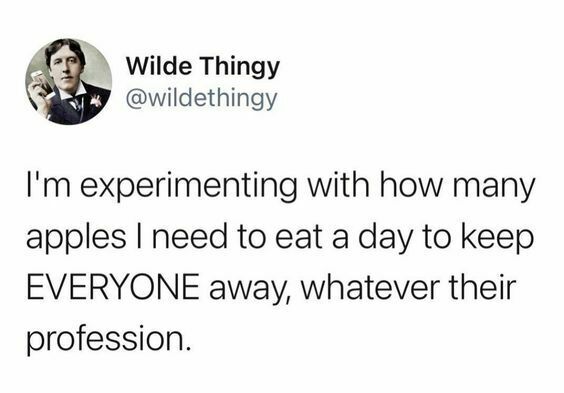Short story: Trump and his followers are basically just complete, fucking assholes.
They are the little shits in grade school and middle school who picked on the other kids; they are the assholes in high school who thought they were better than and deserved more than everyone else; they are the arrogant fuckers in college who felt vindicated when they read Ayn Rand; and they are the "captains of industry" (or else embittered high school losers who discovered too late that just being white is no longer enough) who don't give a shit about anyone but themselves and who victimize anyone they just because it makes them feel good.
Trump and his followers are what our species in the last 2,000 - 10,000 would simply have called Evil.
To beat Trump, we need to know why Americans keep voting for him. Psychologists may have the answer
From George Monbiot at The Guardian
[Almost everything that follows is quoted from the article. I have left it out of italics out of laziness. Except for the hashtags at the end, anything not embedded in square brackets is quoted directly from the article.]
Many explanations are proposed for the continued rise of Donald Trump, and the steadfastness of his support, even as the outrages and criminal charges pile up. Some of these explanations are powerful. But there is one I have seen mentioned nowhere, which could, I believe, be the most important: Trump is king of the extrinsics.
Some psychologists believe our values tend to cluster around certain poles, described as “intrinsic” and “extrinsic”. People with a strong set of intrinsic values are inclined towards empathy, intimacy and self-acceptance. They tend to be open to challenge and change, interested in universal rights and equality, and protective of other people and the living world.
People at the extrinsic end of the spectrum are more attracted to prestige, status, image, fame, power and wealth. They are strongly motivated by the prospect of individual reward and praise. They are more likely to objectify and exploit other people, to behave rudely and aggressively and to dismiss social and environmental impacts. They have little interest in co-operation or community. People with a strong set of extrinsic values are more likely to suffer from frustration, dissatisfaction, stress, anxiety, anger and compulsive behaviour.
Trump exemplifies extrinsic values. From the tower bearing his name in gold letters to his gross overstatements of his wealth; from his endless ranting about “winners” and “losers” to his reported habit of cheating at golf. Trump, perhaps more than any other public figure in recent history, is a walking, talking monument to extrinsic values.
We are not born with our values. They are shaped by the cues and responses we receive from other people and the prevailing mores of our society. They are also moulded by the political environment we inhabit. If people live under a cruel and grasping political system, they tend to normalise and internalise it. This, in turn, permits an even crueller and more grasping political system to develop.
If, by contrast, people live in a country in which no one becomes destitute, in which social norms are characterised by kindness, empathy, community and freedom from want and fear, their values are likely to shift towards the intrinsic end. This process is known as policy feedback, or the “values ratchet”. The values ratchet operates at the societal and the individual level: a strong set of extrinsic values often develops as a result of insecurity and unfulfilled needs. These extrinsic values then generate further insecurity and unfulfilled needs.
This goes deeper than politics. For well over a century, the US, more than most nations, has worshipped extrinsic values: the American dream is a dream of acquiring wealth, spending it conspicuously and escaping the constraints of other people’s needs and demands. It is accompanied, in politics and in popular culture, by toxic myths about failure and success: wealth is the goal, regardless of how it is acquired. The ubiquity of advertising, the commercialisation of society and the rise of consumerism, alongside the media’s obsession with fame and fashion, reinforce this story.
We talk about society’s rightward journey. We talk about polarisation and division. We talk about isolation and the mental health crisis. But what underlies these trends is a shift in values. This is the cause of many of our dysfunctions; the rest are symptoms.
When a society valorises status, money, power and dominance, it is bound to generate frustration. It is mathematically impossible for everyone to be number one. The more the economic elites grab, the more everyone else must lose. Someone must be blamed for the ensuing disappointment. In a culture that worships winners, it can’t be them. It must be those evil people pursuing a kinder world, in which wealth is distributed, no one is forgotten and communities and the living planet are protected. Those who have developed a strong set of extrinsic values will vote for the person who represents them, the person who has what they want. Trump. And where the US goes, the rest of us follow.
Trump might well win again – God help us if he does. If so, his victory will be due not only to the racial resentment of ageing white men, or to his weaponisation of culture wars or to algorithms and echo chambers, important as these factors are. It will also be the result of values embedded so deeply that we forget they are there.
#Trump #MAGA #Antisocial #Disease #Evil
https://www.theguardian.com/commentisfree/2024/jan/29/donald-trump-americans-us-culture-republican
